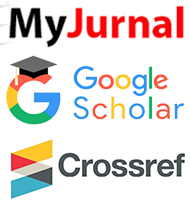Using Cross Border Collaboration Project to Encourage English Language Usage among Thai and Malaysian Undergraduate Students
Keywords:
Collaborative Project, Cross-Border, English Language TeachingAbstract
People often turn to a second language to communicate when the native language fails to be the medium of communication particularly in international collaboration communication. The second language of choice must be a language that is understood by the speaker and the listener. Correct language usage does leave a good impression in many circumstances but in many collaboration activities, the message matters more than the accuracy of the language use. This paper examines the English language usage among the participants from two universities during a collaborative project. Universiti Malaysia Perlis (UniMAP) and Rajamangala University of Technology Srivijaya (RUTS) have conducted a collaborative project for their undergraduate students. In order to encourage the use of English language, the participants are restricted to non-Thai speaking for UniMAP students and non-Malay speaking for RUTS students; with exception for a few students who acted as mediators for emergency situations. The use of English language is reported based on the perspectives of the students which have been gathered using questionnaires. Findings show that the program is successful in encouraging the use of English in all four skills of listening, speaking,reading and writing. Findings also show that writing skill has the highest English language usage amongst the participants of this program.




